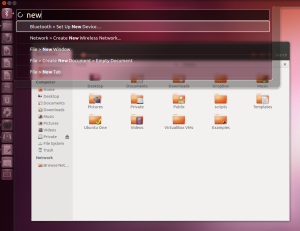Recently there's been a lot of talk about piracy on Android. This came after Madfinger Games dropped Dead Trigger's Android price to $0 citing piracy as the reason. A day or two after, a developer by the name of Matt Gemmell wrote a post criticizing Android for how open it is and how its openness drives piracy. Along with that came some bad reporting, implying that Matt Gemmell was a developer for Madfinger Games. In my opinion, openness has little to do with it and there are some things that need to be cleared up here.
Piracy happens on iOS
There seems to be a lot of misinformation about Android piracy. It happens, and I don't doubt that piracy rates on Android are much higher than on iOS, but that doesn't mean that iOS is invulnerable. The developer of FingerKicks, a popular iOS game, had a pretty horrible experience too. "FingerKicks has sold only 1163 legitimate copies but there are at least 15,950 pirated copies being played on a regular basis on Apple’s Game Center" [link]. That's about the same figure we heard from the Dead Trigger devs. All you need is a jailbroken iPhone, and jailbreaking an iPhone is easier than installing a custom ROM on my Nexus S - the device for OS hackers.
Then there was the story recently about a Russian hacker who managed to redirect iOS in-app purchases through his own server. Apparently this didn't even require a jailbroken iOS device, and it was very simple to setup. The Next Web reported that "30,000+ in-app purchases have been made through Borodin’s service" [link].
iOS is not free of this, and despite being a closed system, piracy is still a big deal.
Users who paid that much money for a phone don't need to pirate.
Ye I said it. The iPhone is a luxury product. As is the Samsung Galaxy SIII. People who paid upward of $500 cash or $150 on contract for a phone are less likely to have an issue paying $1 for an app. Apple's business model is, to a large extent, one of vendor lock in, so most users are used to paying extra money for Apple services and products. Sure, they make high quality, attractive looking products, but those come at a premium price. I sure wouldn't go and sully my beautiful top of the range smart phone with pirated products, potentially containing malware. We also shouldn't forget that while Apple's iPhone 4S costs $199 on contract, Samsung's Galaxy Y costs $159 on prepaid. Android has a much wider range of users, from the ones who can afford apps to show off how rich they are, to tech savvy teens who don't have access to their parent's credit cards...
Google's market still requires a credit card in most countries.
iTunes has considerably better payment options. Until recently Google Play lacked paid market support for most countries. There are many cases where people pirate, not because they don't want to pay, but because they don't have a legal way of getting the app ( or music or movies or TV show ). This phenomenon is relatively common. For example, Game of Thrones was one of the most watched TV shows around the world this past year, especially in countries where it wasn't being broadcast. While Google Play might have a paid market in the Netherlands, it doesn't have payment options. The Netherlands is one of those odd countries where people generally don't have credit cards. I know many people with Android phones who don't have paid access to the Play store. I see iTunes vouchers in my local super market, but never Google Play vouchers. Google need to work at this.
Google is doing something.
Although OS updates are slow on Android ( this deserves another post lamenting device manufacturers ), Android 4.1 automatically encrypts all applications and generates a per device key for each application. Google realise that piracy is easy on Android, so they're trying things to make it more difficult. It may not be enough, and I still think they should focus more on increasing payment options globally, but it's a step forward.
Freemium generates more money on all mobile platforms.
Free to play and Freemium games generate more money on average on mobile platforms. Developing mobile games with a standard cash-on-sale business model is no longer advised by many analysts. Nicholas Lovell has publish much about this, and in my own experience in the mobile games industry, I agree with him. Going free isn't automatically bad. Freemium works around piracy for the most part, and generates more revenue than paid apps. It's the way forward and I respect Madfinger for trying it in an industry of peer pressure not to. Hopefully they'll see the benefits of Freemium and build their next games around it.
Open has little to do with it
I see many issues here, but openness is not one of them. Openness means that it's easier for the 1% of technical users to install custom operating systems and hack their phones. That 1% is not the 90% that Madfinger points out. Openness just gives users choice of where to get their apps from ( legally ) and what apps they use for every function on their device. Openness gives developers aren't locked into an OS and a programming language. Openness is what allows device manufacturers to develop phones with hardware keyboards, massive screens and styli. Openness is what allows for $150 Android devices, which you can easily give your kids so they can use WhatsApp.
Payment options and the fact that we're comparing different socio-economic groups are two of the major monetization influencing differences between the platforms. iOS isn't some sacred perfect platform free of piracy, and it's closed nature may mean that there are more security vulnerabilities, like the in-app purchase one, that we don't even know about. Neither platform is perfect, and much work is going into improving both.











